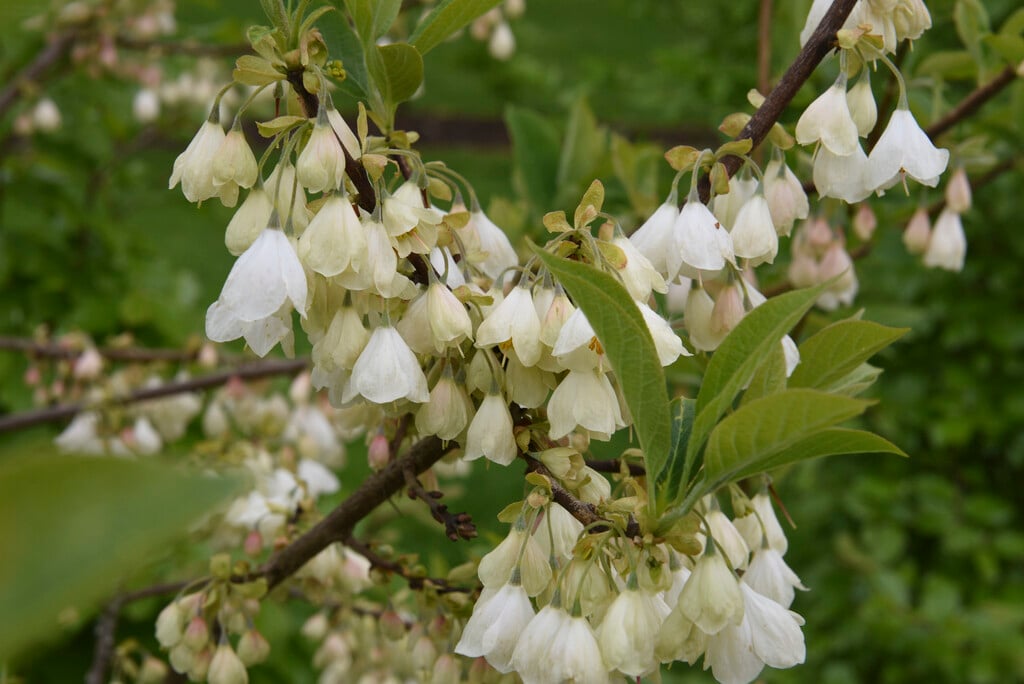Halesia carolina
Carolina silverbell
A deciduous tree or shrub suitable for a woodland garden or shrub border. Pendent clusters of white, bell-shaped flowers in spring, followed by green, four-winged fruits in autumn. Mid-green ovate leaves turn yellow in autumn.
Size
Ultimate height
4–8 metresTime to ultimate height
20–50 yearsUltimate spread
Wider than 8 metresGrowing conditions
Moisture
Moist but well–drainedpH
Acid, NeutralColour & scent
| Stem | Flower | Foliage | Fruit | |
| Spring | White | Green | ||
|---|---|---|---|---|
| Summer | Green | |||
| Autumn | Yellow | Green | ||
| Winter |
Position
- Full sun
- Partial shade
Aspect
South–facing or West–facing or East–facing or North–facing
Exposure
Sheltered Hardiness
H5Botanical details
- Family
- Styracaceae
- Native to GB / Ireland
- No
- Foliage
- Deciduous
- Habit
- Bushy
- Genus
Halesia are deciduous shrubs or small trees with simple, ovate leaves and pendent, bell-shaped white flowers followed by distinctive, winged fruits
- Name status
Correct
- Plant range
- SE USA
How to grow
Cultivation
Grow in lime-free, moist but well-drained soil in partial shade; suitable for woodlands
Propagation
Propagate by seed or softwood cuttings
Suggested planting locations and garden types
- Architectural
- Low Maintenance
Pruning
Pests
Generally pest-free
Diseases
May be susceptible to honey fungus in gardens where it is present but insufficient data to determine degree of susceptibility
Love gardening
Sign up to receive regular gardening tips, inspiration, offers and more
View our Privacy Policy
Get involved
The Royal Horticultural Society is the UK’s leading gardening charity. We aim to enrich everyone’s life through plants, and make the UK a greener and more beautiful place.
